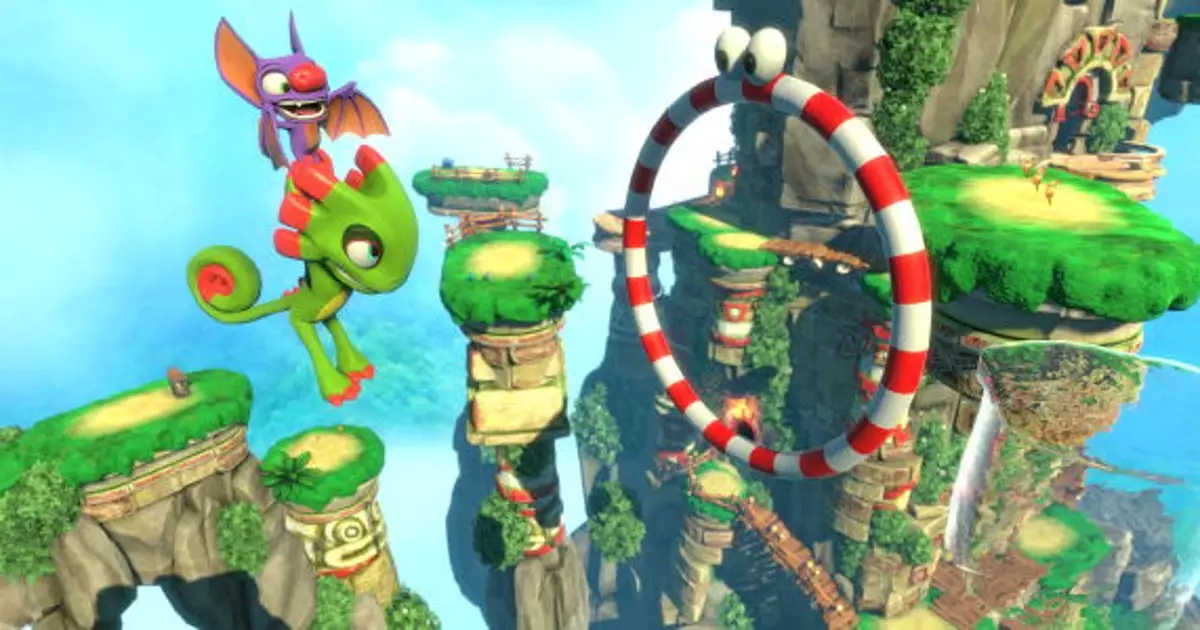The recent news of staff layoffs at Playtonic, the UK-based studio behind the beloved Yooka-Laylee franchise, underscores a growing unease rippling through the video game industry. The developers describe this moment as a “period of profound change in how games are created and financed.” However, the specifics behind these changes remain nebulous. Are we witnessing a shift towards bloated production budgets? Is the dominance of persistent online games squeezing out lesser-known genres like classic platformers? Or is it simply that the gaming community is losing its appetite for the vibrant mascot-driven adventures that once dominated the landscape? While these questions linger unanswered, one thing is certain: talented creatives, including artists, designers, and producers, now find themselves navigating an increasingly precarious job market.
The Human Cost of Corporate Decisions
In their statement regarding the layoffs, Playtonic stressed that these departures do not reflect the competence or dedication of those affected. They recognized the heart and soul that each individual poured into their work. Such an acknowledgment is commendable, yet it raises ethical concerns about how companies prioritize their bottom lines over the welfare of their employees. The tech-driven gaming industry, often lauded for its creativity and innovation, seems to be suffocated by the pressures of financial survival. The language used by Playtonic is notably more compassionate than the corporate jargon often employed in precisely similar situations, yet it still fails to alleviate the harsh reality faced by former employees now seeking refuge in a dwindling job market.
Networking in Troubling Times
Anni Valkama, Playtonic’s brand manager, has taken to LinkedIn to share a list of departing staff. This gesture is more than just a formality; it’s a lifeline extended towards their former team members. By highlighting the talent available, Valkama has tapped into the spirit of community that often emerges in difficult times. The gaming industry is no stranger to networking, and at this moment, solidarity is vital. The unexpectedness of the layoffs intensifies the urgency for these skilled individuals to find new positions in a climate that hasn’t exactly been warm and welcoming. As companies realign and consolidate, securing a position in gaming is more competitive than ever.
The Broader Implications of Change
Playtonic’s woes aren’t isolated. The entire industry is grappling with challenges resulting from the pandemic which saw an unprecedented surge in gaming. However, as reality set back in, many studios were left floundering when the demand began to taper. Playtonic’s experience speaks to a larger narrative of survival—where studios must adapt or risk obscurity. The rapid pace of change is forcing developers to rethink their business models, often at the cost of their personnel. This situation is not merely an inconvenience; it’s a fundamental restructuring that will define the future of game development.
Reflecting on the Legacy of a Studio
Founded in 2014 by ex-Rare employees, Playtonic has made notable strides in rekindling the charm of classic platforming games. Their initial foray, Yooka-Laylee, sought to evoke the nostalgia of titles like Banjo-Kazooie but fell flat for many critics. The release of Yooka-Laylee and the Impossible Lair, however, garnered accolades and marked a critical turning point. Their subsequent venture into publishing with Playtonic Friends aimed to bolster indie developers, yet even this branch has not been immune to the backlash of shifting market dynamics. The introduction of Tencent as a minority stakeholder is another layer of complexity in their narrative, raising questions about how external financial influence might reshape their vision going forward.
The Future: Uncertain Yet Hopeful
As we observe the shifting landscape of gaming, the plight of Playtonic serves as a stark reminder of the fragility of creative roles within a corporately driven environment. Players and developers alike must brace for an industry that may not resemble the one we knew before. While economic realities necessitate change, they should not overshadow the vibrant creativity that drives video games forward. Within this period of disruption lies an opportunity for innovation—those studios that remain agile and receptive to change may ultimately thrive in this new era. The resilience of teams like Playtonic and the individual talent they harbor could well serve as the foundation for the next wave of gaming excellence.


Leave a Reply